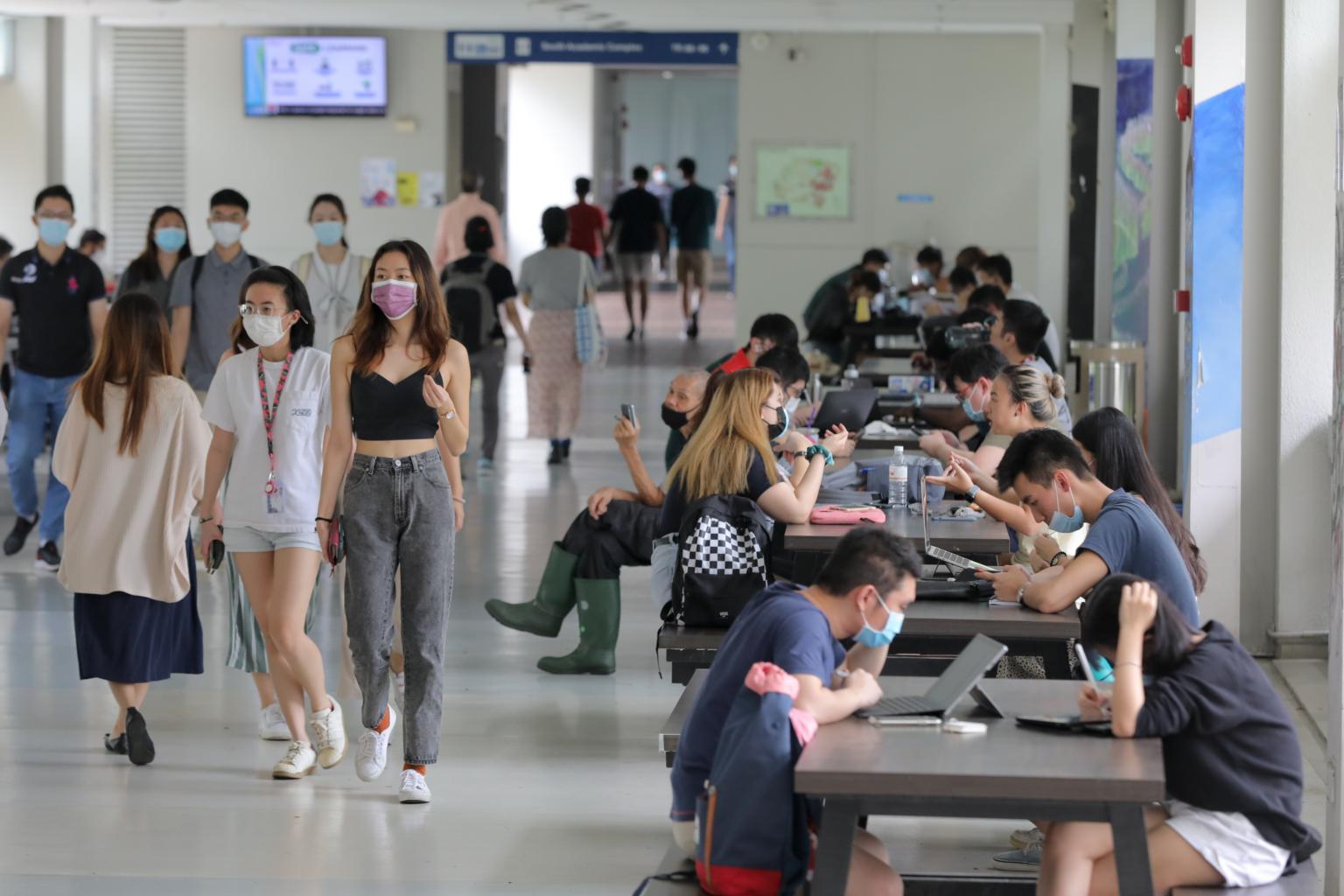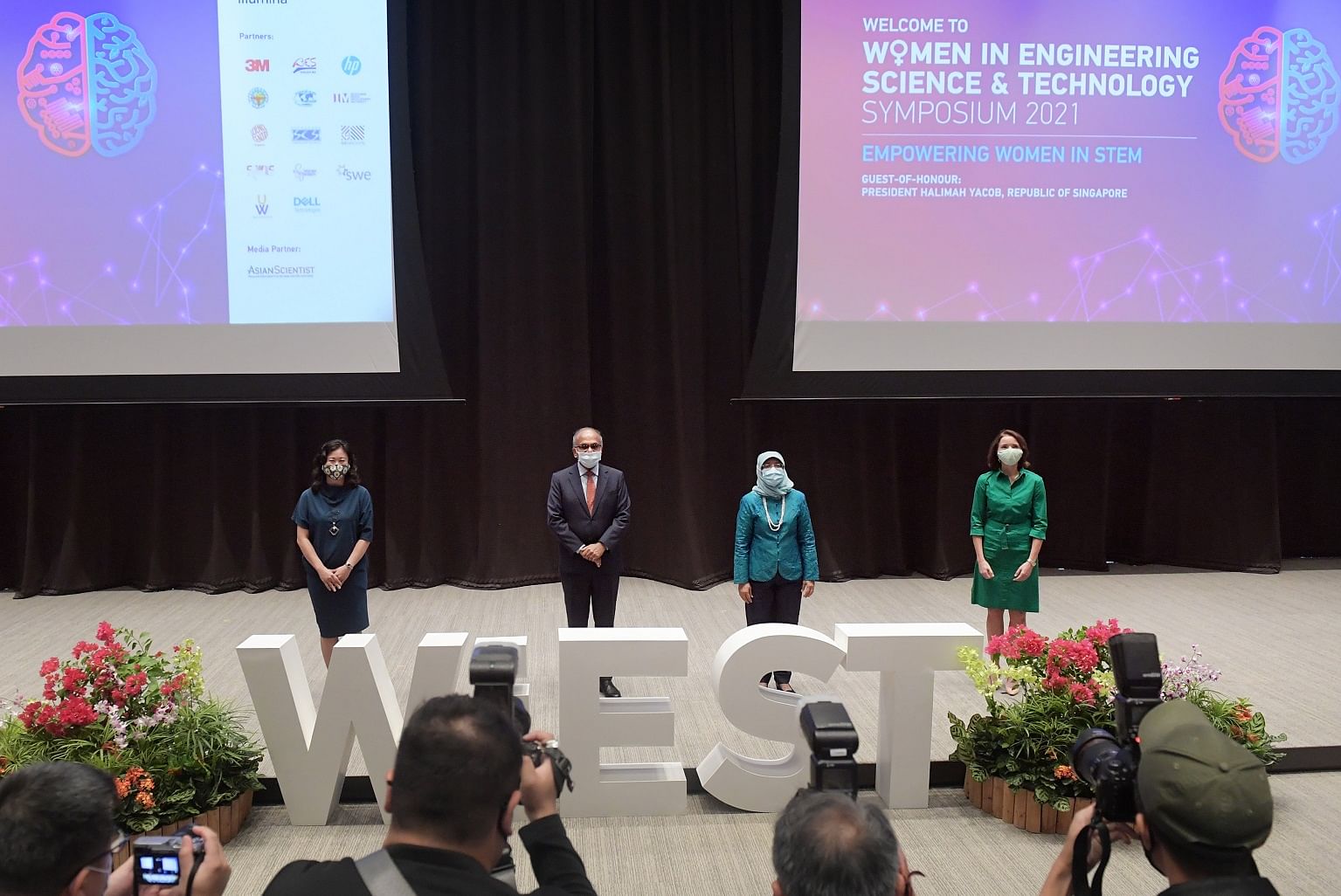Only 58% of women with Stem qualifications work in related jobs, compared with 70% for men: Study
Sign up now: Get tips on how to help your child succeed

A new programme at NTU aims to connect women with role models and mentors.
PHOTO: ST FILE
Follow topic:
SINGAPORE - A study of 738 Singaporeans by the Nanyang Technological University (NTU) has found that just 58 per cent of women who graduate with Stem degrees or diplomas go on to have related careers.
In comparison, 70 per cent of men who hold such qualifications are in related fields of work.
To tackle this "leak" of Stem talents, two female NTU professors are starting a new programme for women, to persuade more to pursue an education focusing on Stem - short for science, technology, engineering and mathematics - and work in related fields.
The Promotion of Women in Engineering, Research, and Science (Powers) programme was launched on Friday (March 5) by President Halimah Yacob at the biennial Women in Engineering, Science & Technology symposium.
The event was held at the Lee Kong Chian School of Medicine at NTU's Novena campus.
Powers is funded by the Ministry of Education and headed by Associate Professor Sierin Lim from NTU's School of Chemical and Biomedical Engineering, and Associate Professor Kimberly Kline from NTU's School of Biological Sciences.
The strategy of the programme is to: connect women with role models and mentors, conduct research to address barriers and gaps in the local context, and provide education opportunities through public talks and activities to share discoveries.
For a start, 20 to 30 incoming female students enrolled in NTU's science and engineering faculties in the first year will be matched to female faculty members in the new academic year from August.
Students will also be connected to seniors who can share their experiences studying Stem subjects.
Prof Kline, associate dean (faculty) at NTU's College of Science, said this will be a year-long mentoring programme with monthly meetings.
Training will be conducted for faculty so they are equipped to motivate students, help them develop leadership skills and build personal connections with them.
"We want to have a strong support system to build a sense of belonging for women in the Stem community," she said.
The programme follows a study by NTU clinical psychologist and senior research fellow, Dr Chua Sook Ning, who had aimed to understand the gender disparity in Stem careers.
The study's key findings were presented on Friday at the symposium.
It showed that a proportion of women did not feel they belong in Stem-related fields of study and work.

Those who felt this way tended to leave their Stem jobs, compared with men in general and other women who stayed on in the Stem sector.
Prof Lim, NTU's associate dean of global partnerships at its Graduate College, said more research is needed to understand why women do not continue in Stem work, what experiences prompted such perceptions and factors that can help retain women in Stem fields of study and work.
Prof Kline said: "The findings offer a possible point of intervention - women are training in Stem fields, but they are not staying on."
She added: "Society is made up of equal parts men and women, and so we don't want just men making discoveries and innovation for all of society.
"We need men and women speaking to these great challenges that we face right now, helping to come up with the most creative and diverse solutions to the problems."
In her speech, President Halimah said it is important for women to define the future direction of engineering, science and technology, particularly in the recovery following the Covid-19 pandemic.
"A gender-balanced research team is more likely to consider certain variables that are influenced by a difference in socio-economic circumstances or biological sex. For instance, women have historically been excluded from medical research," she said.
"Much of what we know of health and medicine has been informed by studies on men. However, scientific research has shown us that diseases can affect men and women differently, and may require different treatments."
Another example, she added, can be found in engineering, where the first-generation airbags in cars caused serious injuries and even deaths of women and children because they were designed for the adult male by predominantly male engineers.
"Having woman engineer, scientist or technologist means that more women will lead important discoveries, develop new technology and medicine, which, in turn, drives our economy, creating jobs and building a better world for everyone," she said.

